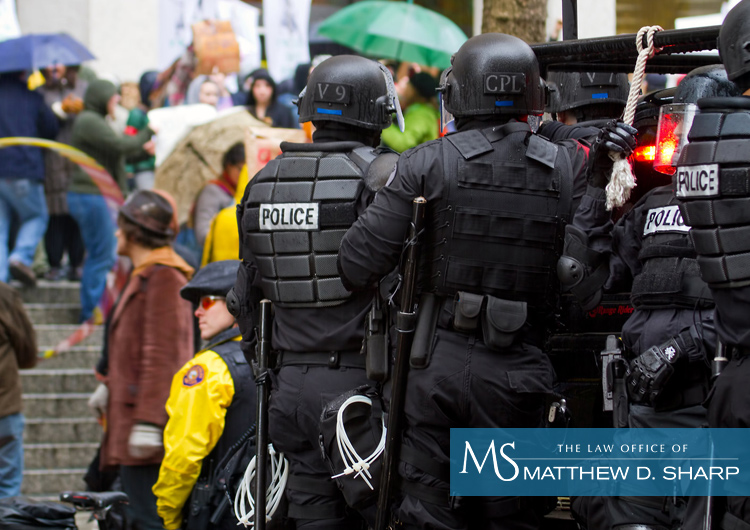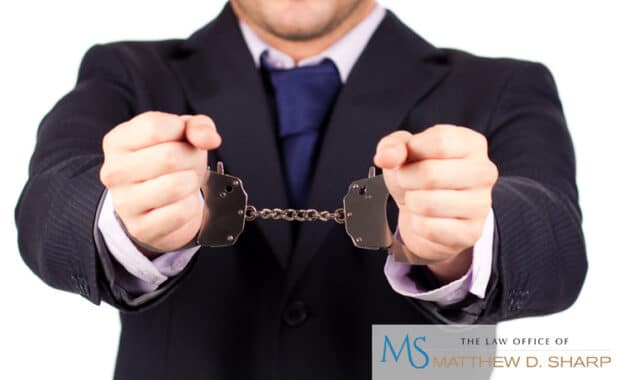The death of George Floyd at the hands of Milwaukee police has been followed by worldwide protests. Being that Floyd was a Houston native, Texan protestors came out in large numbers.
Unfortunately, these protests have led to numerous arrests.
Of the many arrests that were made in Texas during the protests, a surprisingly large number were for nonviolent offenses. These low-level crimes included blocking the road, breaking curfew and disorderly conduct.
According to Texas Monthly, a much smaller percentage of the people arrested in the first week of protests, which was over 1,000, were arrested for violent offenses.
Let’s look a little closer at these arrests.
Texas protesters arrested
On May 31, Texas Governor Greg Abbott declared a state of disaster, stating that it was because of violence and looting from protesters.
The next day, the governor commented that the protests had been hijacked by out-of-state agitators. He went on to say that these agitators will be subject to federal prosecution.
Arrest records, however, showed that the majority of individuals arrested were from Texas.
Here are a few stats related to the arrest records of those that protested the death of George Floyd, as reported in Newsweek:
- Between May 29th and May 31st, 181 people were arrested during a protest in Dallas. 85 percent of these arrested were for non-violent offenses.
- On June 1st, 674 protesters were arrested, but criminal charges were not pursued.
- San Antonio arrested 20 protesters and over half were for non-violent offenses.
- Austin saw 50 people arrested; 40 percent were for low-level offenses.
- In Houston, 602 protesters who were arrested had their charges dropped by prosecutors.
- 50 protesters who were arrested in Fort Worth for rioting had their charges dropped.
Many legal experts are seeking clarification on the definition of “riot participation” under Texas law.
Andy Chatham, who was previously a Dallas district judge, commented in Texas Monthly that:
“Simply being next to someone who decides that this is going to turn into a riot when it starts out peacefully doesn’t make you a rioter, and I know that’s what happened here.”
Consequences of arrests on your record
Unfortunately, the arrests that many of these protesters will now have on their records will bring about consequences that negatively affect opportunities in their future.
Here are a few of the ways an arrest on your record can negatively affect you:
- Child custody. Arrests could limit your child custody rights.
- Employment. Arrests can make it difficult to find a job.
- Driving. Arrests could result in you losing your right to drive.
- College admissions. You could be denied admission to an educational institution due to a criminal record.
- Obtaining a residence. A property manager could deny you residency because of arrests.
- Immigration. Arrests can prevent you from getting a green card or other change in your immigration status.
- Professional licenses. A person’s professional license could get revoked due to arrests.
- Successive arrests. Additional arrests can bring about harsher sentences or penalties.
Consequences of an arrest during a pandemic
Another timely consequence of getting arrested now is the higher probability of contracting COVID-19 while in jail.
There are a lot of people coming and going through prisons and jails, including visitors and those who are employed there. Meaning, there are many ways that COVID-19 can make its way into one of these institutions.
And once it’s there, the close proximity of the visitors and inhabitants make it a perfect breeding ground for any virus.
Aside from the close proximity in jails, individuals in jail also aren’t able to wash their hands as often as they should, making spreading the virus even easier.





